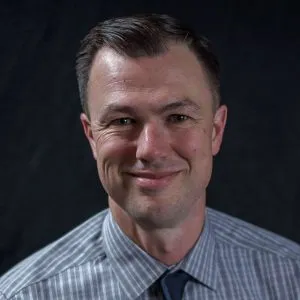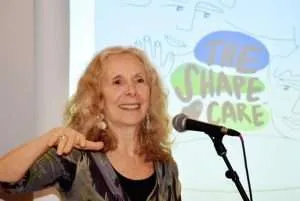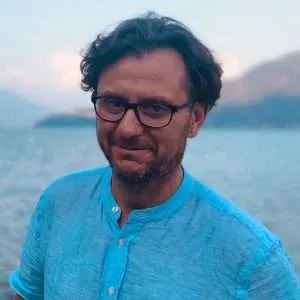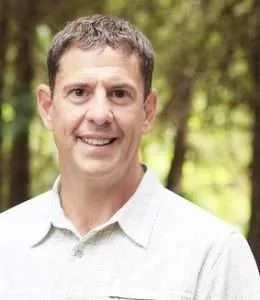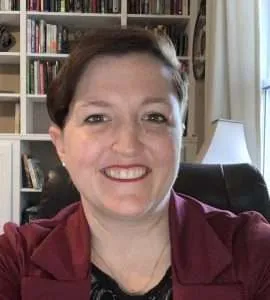Editorial Note:
This profile of James Frazier, LPC, CSOTP, CCS is brought to you through a joint collaboration between Applied Worldwide and the Association for Applied and Clinical Sociology (AACS). Thank you to AACS and all those who made valuable contributions to the Profiles in Applied & Clinical Sociology series.
This profile is presented with the intentions of: 1) providing students with examples of applied sociology, 2) providing market value to sociological skills and services, and 3) promoting the work of individual sociological practitioners and organizations. You can learn more about AACS at AACSnet.net.
James Frazier, LPC, CSOTP, CCS
James Frazier earned a bachelor’s degree in Sociology, minoring in psychology to meet prerequisites for a graduate program in counseling. After earning his Master of Arts/Education Specialist degree in Mental Health Counseling, he went on to earn a graduate certificate in Sociology and a Master of Public Administration degree. He told us he originally “aimed to major in Psychology in order to become a mental health therapist down the road” but “in [his] second semester of college [he] learned [he] loved sociology.”
James later went through the credentialing process with the Association for Applied and Clinical Sociology (AACS). Regarding that process, he told us:
When going into the mental health field, you have decisions and options for which areas of specialties and expertise you prefer and need. With a background in sex offender treatment and counseling, I went on to earn my license as a professional counselor and certification as a sex offender treatment provider. Wanting to recognize the effort and attention I give to sociological theory and conceptualization, though, I also participated in the credentialing process through the [AACS], ultimately earning my certification as a clinical sociologist. I like to think of the six months it took to earn this credential as the time I learned more about sociology and myself as a sociologist than all of my years studying the discipline in college. Well worth it!
James Frazier, LPC, CSOTP, CCS
Read the full interview with James Frazier about his work as a clinical sociologist below!
Using Sociology in Practice
To begin, can you briefly describe the work you do as an applied or clinical sociologist?
I work with the Virginia Department of Corrections (VADOC) as a therapist, psychosexual evaluator, and trainer. My primary role with the Department is with the training Academy, but I also work closely with the Department’s sex offender treatment program housed at one of our prisons. Outside of my work with the Department, I work at a local community college where I teach sociology.
My work with the Academy involves training our agency’s employees on sex offender treatment and supervision, as well as mental health and crisis response. As a therapist, I specialize in sex offender treatment. Our Department has an intensive sex offender treatment program where I work with offenders to complete psychosexual evaluations and psychological testing, and provide individual and group therapy. This work, of course, focuses on sex offender treatment issues, but therapy involves approaching many issues related to mental health, like depression, grief and loss, anxiety, and so on.
How did you establish yourself as an applied or clinical sociologist?
Although my work primarily relies on and is regulated by professional licenses and credentialing, I sought out certification as a clinical sociologist (CCS) through AACS to strengthen my work with sociology and showcase my passion and efforts in the discipline. Many colleagues of mine, and people in this field in general, must hold specific credentials (i.e. professional human services license, certification as a sex offender treatment provider), but go on to earn credentials that match their interests and expertise. After earning my CCS, I went on to talk about how I was conceptualizing cases I was working on, incorporating sociological theory and perspectives into forming questions for clinical interviews and evaluations, and laying out my rationale and consideration to social bases for treatment planning. Clinical sociology is a great informative practice that strongly compliments interdisciplinary work.
In general, how do you use sociology in practice?
Sociology influences much of my work, whether the work is as a therapist or trainer/instructor. In treatment provision, sociology helps me open my mind to the many social and environmental influences behind our decisions and behaviors. It is easy to assume people act one way just because they want to, but sociology reminds us that our parents, friends, the media, etiquette, instilled values and beliefs we learn, and much more shape our understanding of everything around us and how we respond. Helping others requires using countless disciplines and explanations for individual circumstances, and sociology is a valuable tool for this.
In teaching, sociology helps you better understand your students—not only how they are behaving in class, but how their circumstances, social pressures, external forces, mental health and substance use issues, and responsibilities impact their learning. When you better understand how things around us can impact us, you, as a teacher, better understand how to approach the learning process and help them succeed.
How do you use sociological theory in practice?
A majority of my clinical work is completing psychosexual evaluations, which involves me interviewing offenders and writing the evaluation. These evaluations determine risk factors, treatment needs, areas of strength, diagnoses, and more. Whenever questioning and writing about someone’s history in order to recommend treatment interventions, I draw heavily from sociological theories and perspectives to better understand the individual and social conditions that may have contributed to the offending. I tend to find benefit from these theories the most: Dramaturgical analysis, constructivism, social ecological theory, and symbolic interactionist. These theories help me better understand the roles someone fulfilled or experienced in the offending (dramaturgy), the constructed “reality” under which they live based on socialization and distorted beliefs (constructivism, symbolic interactionist), and the crossover of different factors that influence our adaptation to interactions and social systems (social ecological).
Theories do the conceptualization for us, we just have to make the connections and find what fits best. For example, in a rape offense I might want to consider the messages the offender received about women while growing up, how he viewed women in general, or messages given about women through media/advertisements. Considering these social-based influences can help me better understand the offender’s attitude about women, or maybe a normalized sense of entitlement toward sex that contributed to the offending.
Lessons for Future Practitioners
What types of courses should undergraduate students take in preparation for a career in your type of practice?
Most, if not all, graduate programs will require some undergraduate work in psychology or human services. You would want to check local (or your preferred) schools’ graduate counseling/human services programs to see how many and what courses to take.
For sociology, however, take plenty of courses like sociology of deviance, family, death and dying, corrections, and the almighty theories course(s). These will strengthen your understanding of how these areas influence criminal behavior and thinking.
What types of courses should graduate students take in preparation for a career in your type of practice?
Not all states have state board-regulated sex offender treatment credentialing. For states that do not have this regulation, practitioners will be working under their professional mental health/human services license. To work in sex offender treatment or mental health counseling, seek out graduate programs that are accredited and meet the requirements for the professional license you desire, whether as a professional counselor, clinical social worker, clinical psychologist, or marriage and family therapist. Certifications in sex offender treatment will require their own education and training requirements, but usually involve a combination of education in human services and experience in the field.
What types of experiences should graduate students seek in preparation for a career in your type of practice?
Graduate students working in human services who want to work with people who have committed sex offenses should seek out internship placements or work with agencies/practices that provide sex offender treatment. Corrections is an excellent field for work because you get opportunities for experience in the work you would not get as easily in private counseling agencies.
What advice do you have for aspiring applied and clinical sociologists?
Sociology is a wonderful and valuable field, but often overlooked in terms of being valuable. Applied and clinical sociology offer opportunities for sociologists to put their discipline into practice and enhance the work they do. I tell many people who are interested in these fields to find colleges with sociology programs that focus beyond the “general” track. Programs are beginning to highlight applied sociology, digital/social media concentrations for applied sociology, public sociology, and so on. These programs prepare students to apply and practice their work in sociology in lieu of only getting an understanding of general sociology.
Clinical sociology continues to be the less-developed subfield in the discipline, but AACS is filling that gap very nicely! I encourage anyone interested in this work to earn their bachelor’s degree in sociology (preferably a focused track) and go on to study at a graduate program, whether sociology or related to sociology. Reach out to AACS and get credentialed!


